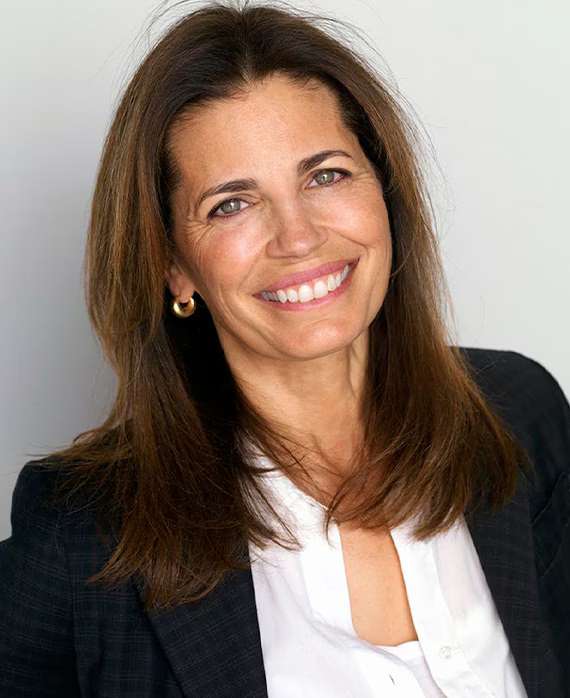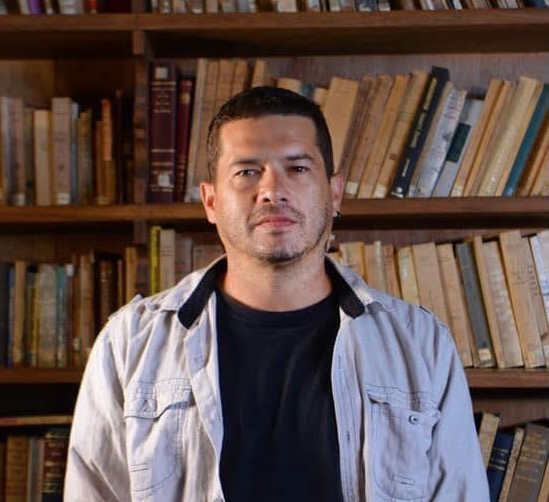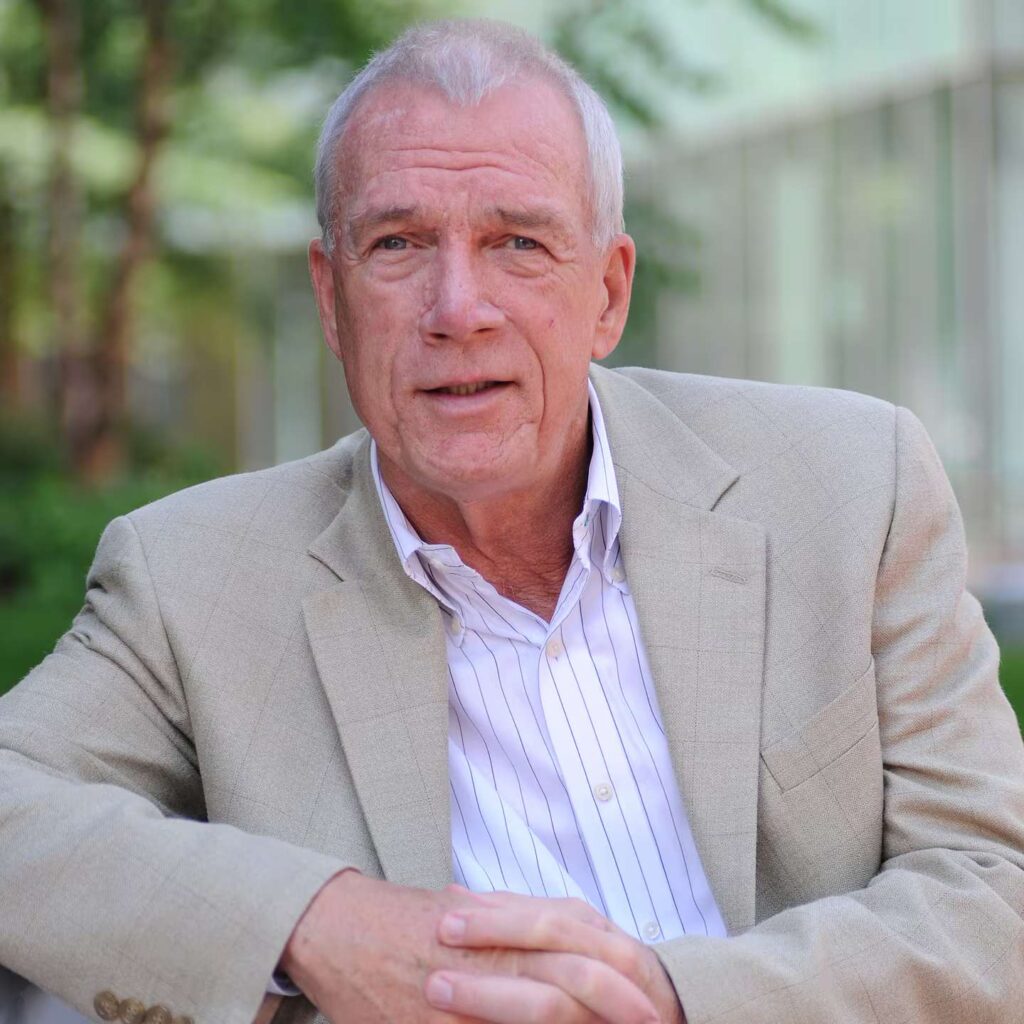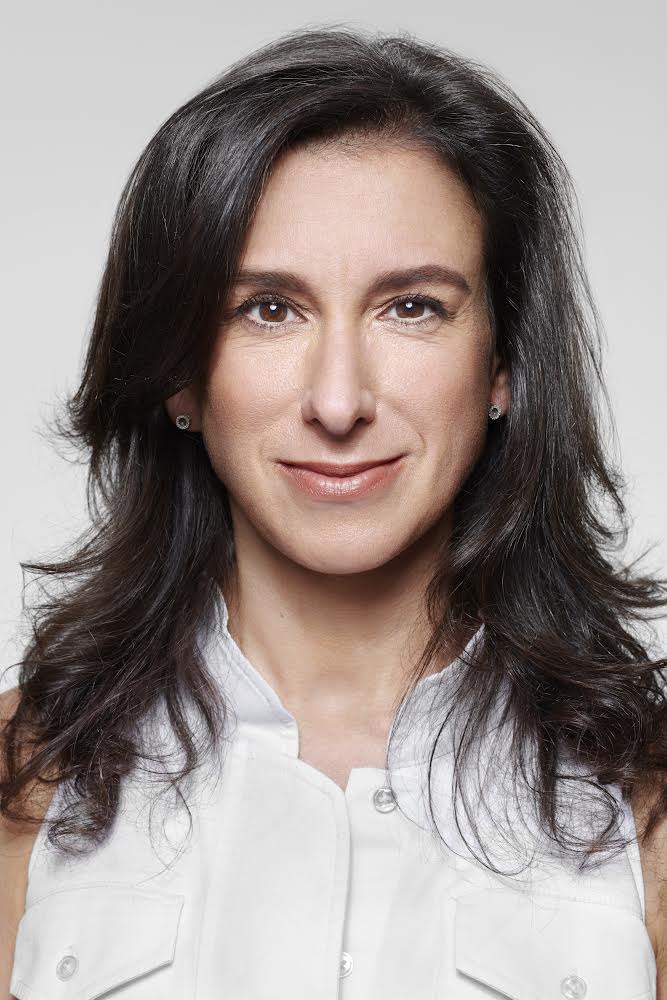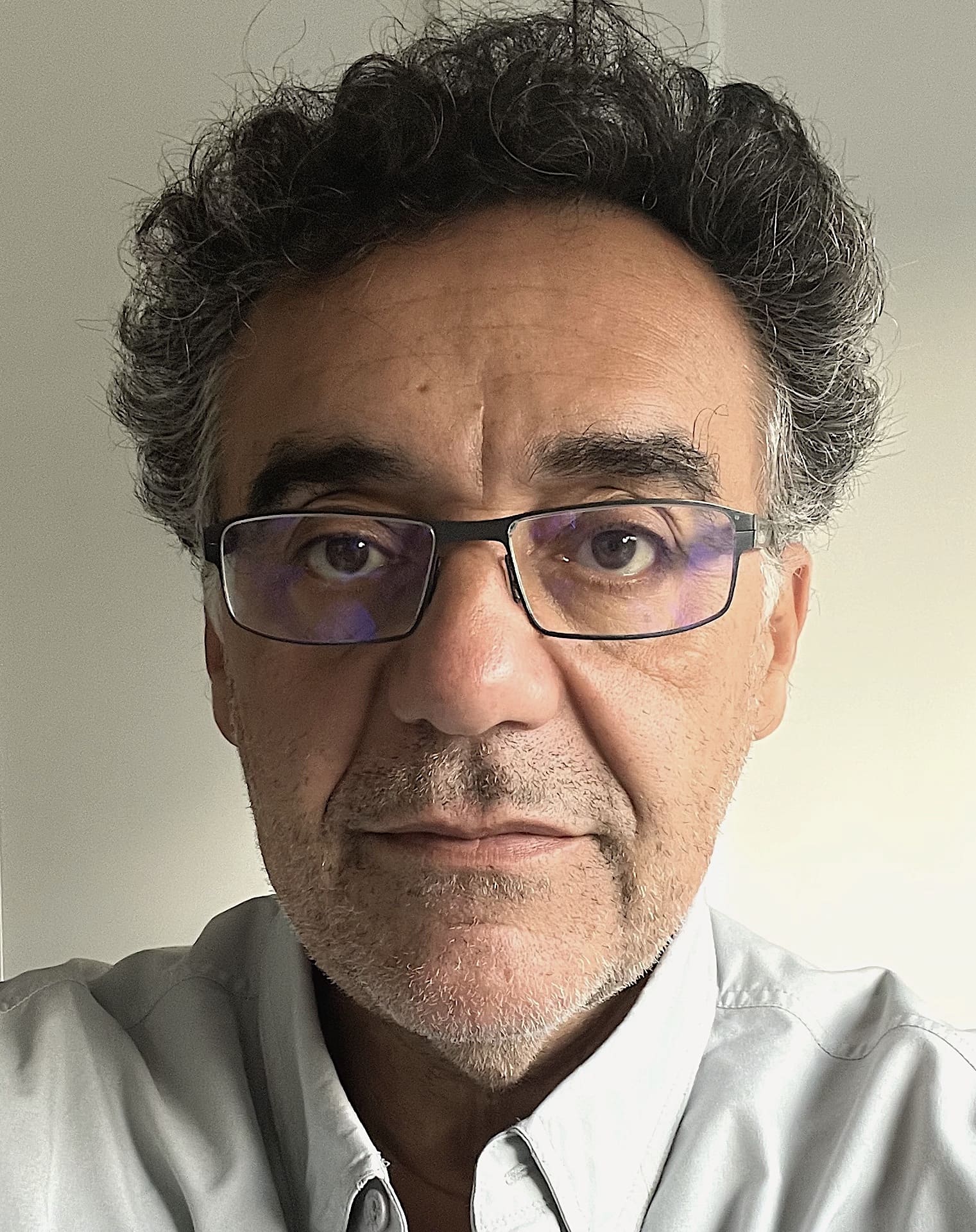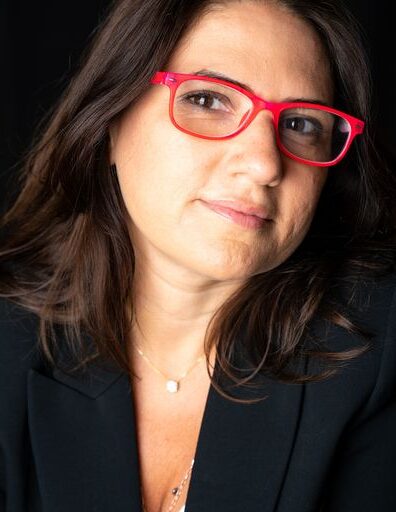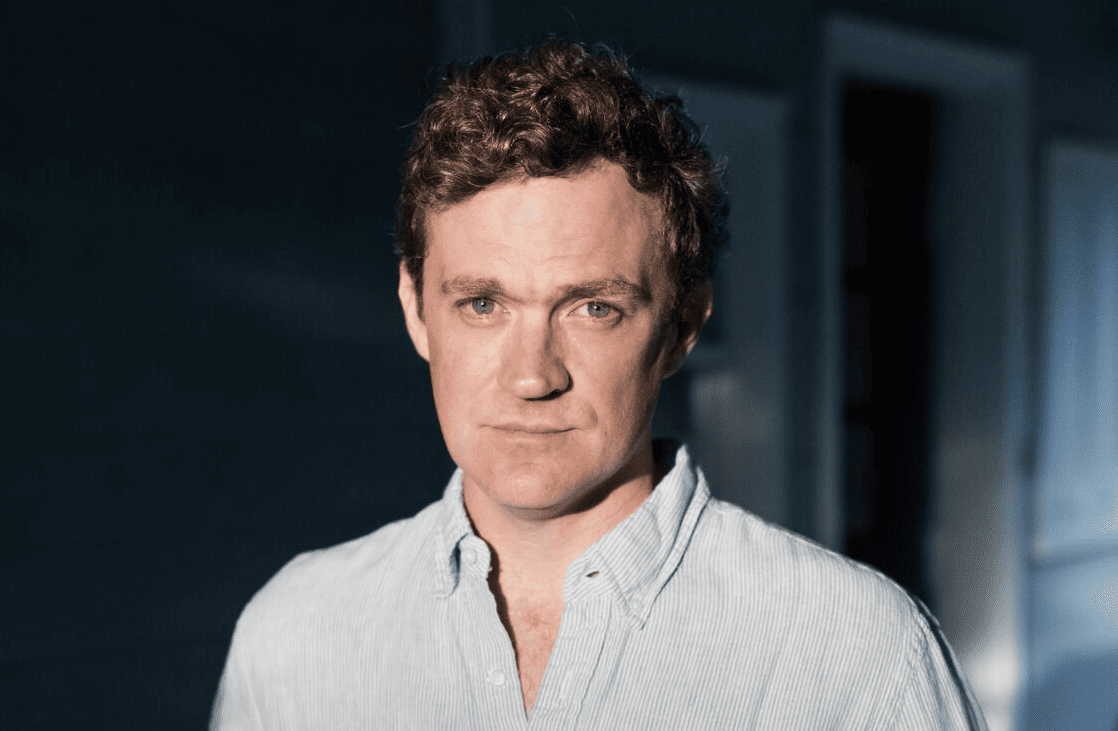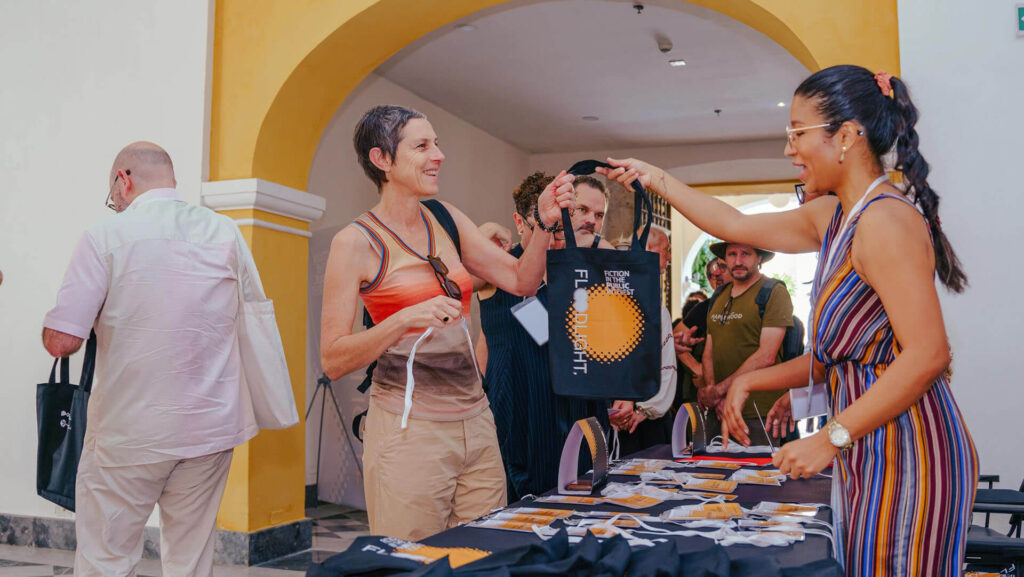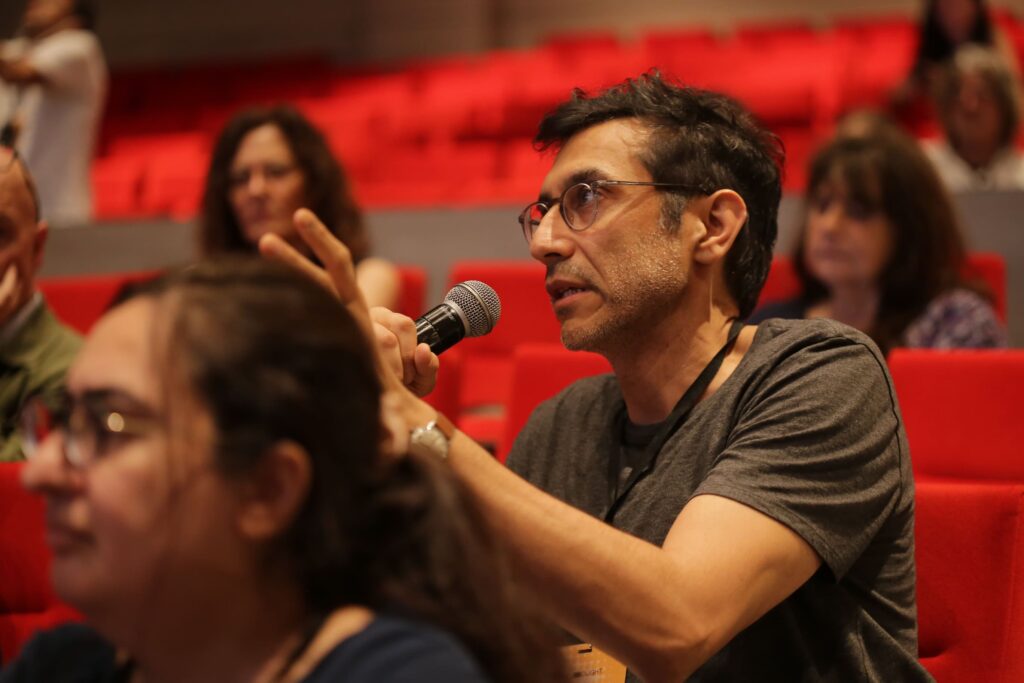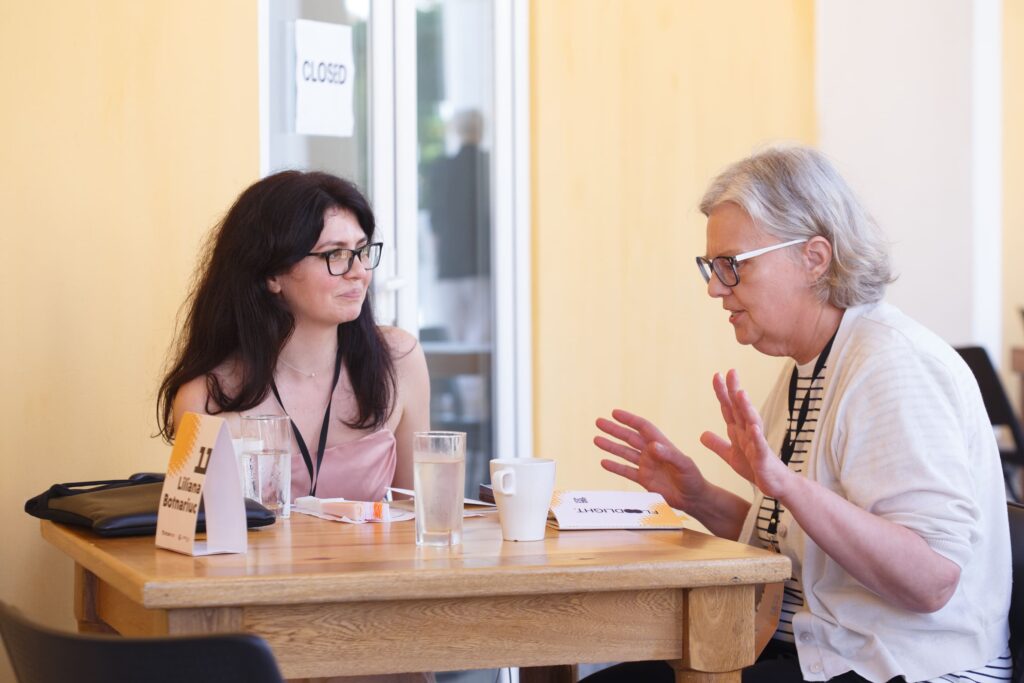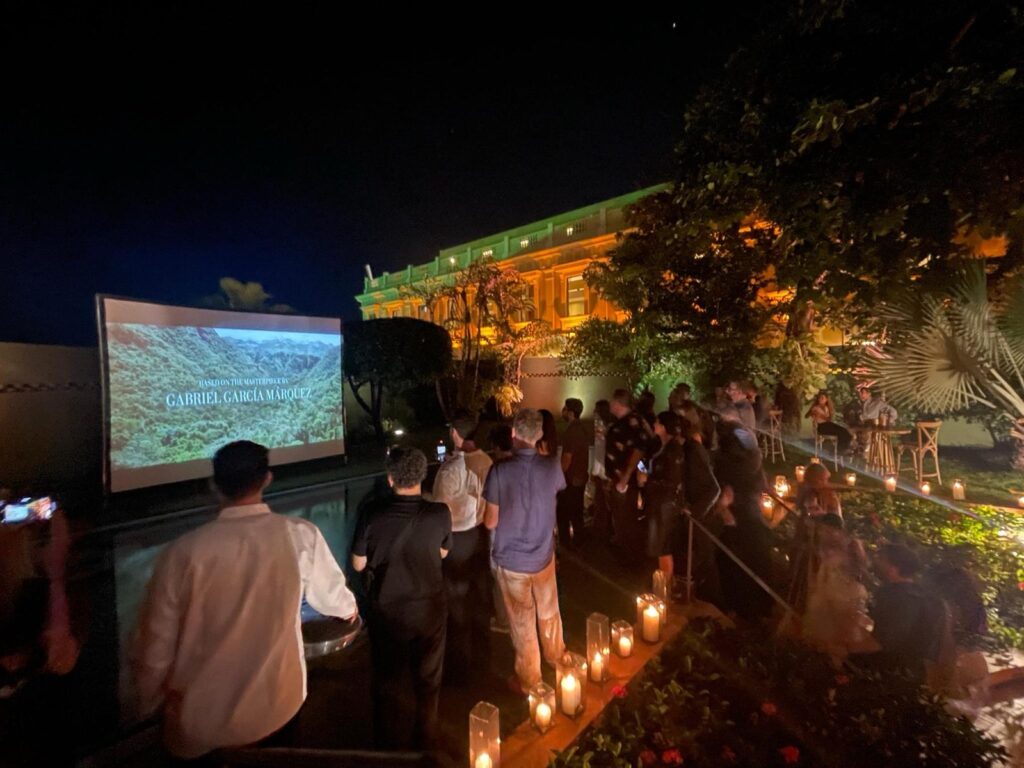Fiction in the public interest
Floodlight connects investigative reporting with the film and television industry to produce informed fiction in the public interest

About Us
Hard-hitting investigative journalism. Gripping films and television series. Floodlight is the bridge between these two worlds. We source and curate a selection of the most riveting investigations from top journalists, shape the material, and present it to leading filmmakers and television series creators for adaptations into rich stories.
Floodlight was created by the Organized Crime and Corruption Reporting Project (OCCRP), the Gabo Foundation, and film industry professionals. Now an independent organization, Floodlight fuses fact with storytelling in service of the public interest.

History
The idea for Floodlight was sparked in 2022 when OCCRP Co-Founder and veteran investigative journalist Paul Radu and Gabo Foundation General Director Jaime Abello met for the first time in Cartagena, Colombia. In their roles at their respective organizations, Paul and Jaime encounter some of the most powerful investigative reporting of our time.
Their mutual passion for truth-based fiction and the impact that film and television can have on audiences seeded this marriage between investigative journalism and the film and television industry.
After partnering with film industry veterans Philippa Kowarsky and Alesia Weston, Floodlight was officially formed.
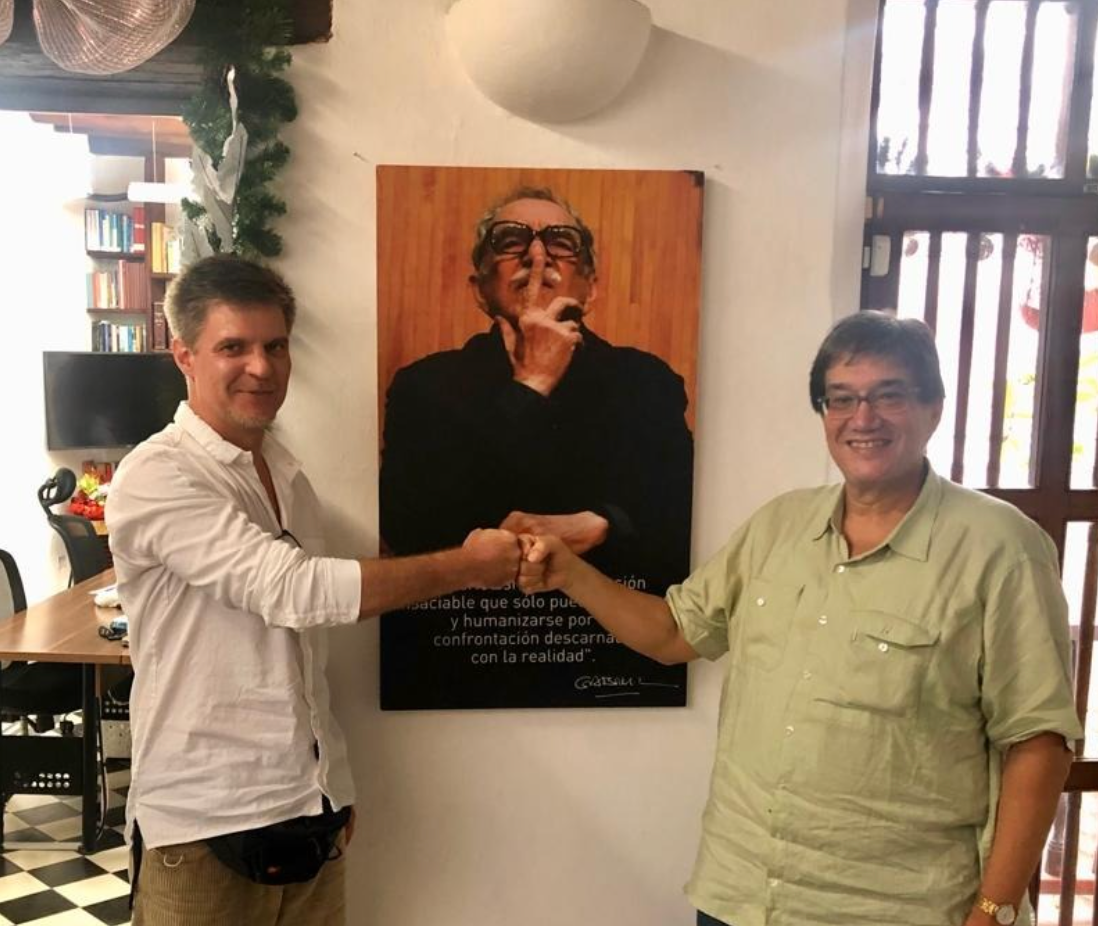
The Summit
The year-round program includes a rigorous selection process and culminates in the annual Floodlight Summit. Investigative journalists and filmmakers spend three days together in an intimate setting in spirited conversation about the best ways to translate reporting into engrossing films and television series.
After days of pitches, panel discussions with legends in journalism and film, and one-on-one meetings, attendees leave Floodlight with a new understanding and appreciation of the other’s industry. New relationships are formed and projects are discussed to bring these stories to light.
The Floodlight Select Journalists and their stories hail from all corners of the globe, including Africa, Asia, Europe, Latin America, the Middle East, Oceania, and the United States.
Participating international film and television producers, writers, and directors have included: producer Rodrigo Garcia (One Hundred Years of Solitude, News of a Kidnapping), director Maria Schrader (She Said, Unorthodox), producer Nicolàs Celis (Emilia Pérez, Roma), screenwriter Charles Randolph (Oscar winner, The Big Short), screenwriter Susannah Grant (Oscar nominated, Erin Brockovich), producer Andrea Calderwood (BAFTA winner, The Last King of Scotland), writer Ziad Doueiri (Oscar nominated, The Insult), and writer-director Danis Tanović (Oscar winner, No Man’s Land).
Featured speakers have included the journalists and filmmakers behind Oscar-winning films Navalny and Spotlight, and the BAFTA-nominated She Said, as well as critically-acclaimed television series Say Nothing and One Hundred Years of Solitude.

Consulting
Our journalists are available to consult in writers’ rooms, on projects in development, and from a business perspective.
Spanning six continents, our global network of reporters represents some of the last independent media in countries where media capture is entrenched and government-controlled outlets prevail.
We expose how transnational organized crime and high-level corruption are woven together, spreading across borders and infiltrating many aspects of daily life. Topics include: disinformation and its architects, dark money in democracies, human trafficking, corruption’s role in environmental destruction, transnational crime and its links to terrorism, money laundering and the professional enablers who make it possible, and sanctions evasion.
Don’t see a topic you’re interested in on this list? Write to us — we’re probably on it.
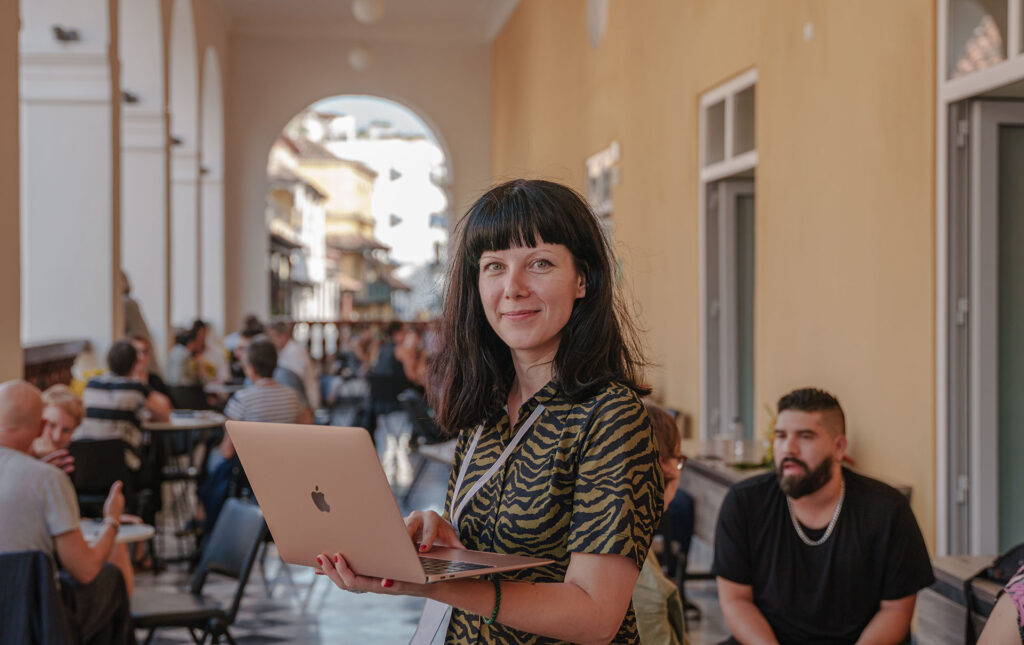
In journalism, just one fact that is false prejudices the entire work. In fiction, one single fact that is true gives legitimacy to the entire work.Gabriel Garcia Márquez
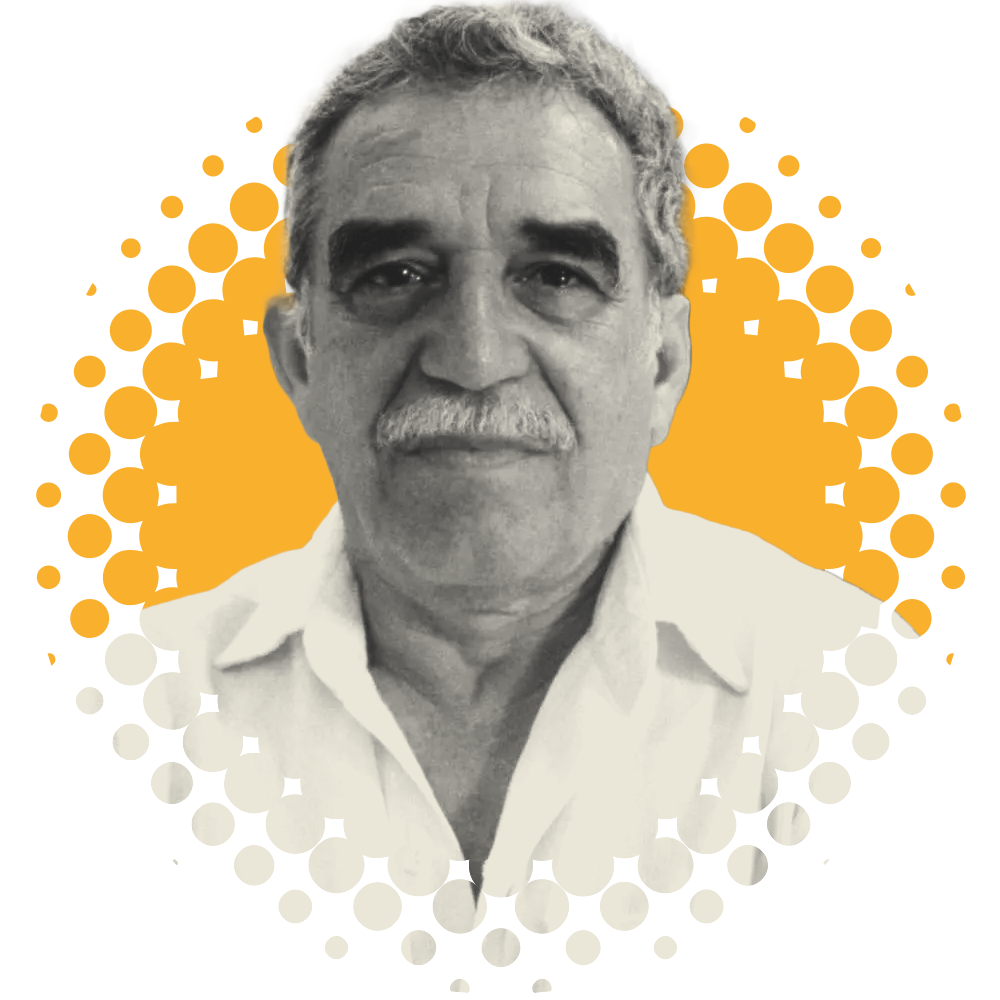
News and Events
Variety
The Hollywood Reporter
Deadline
Floodlight Summit Video 2023
The Floodlight Summit is held every year in Cartagena, Colombia. Watch the video (2024):
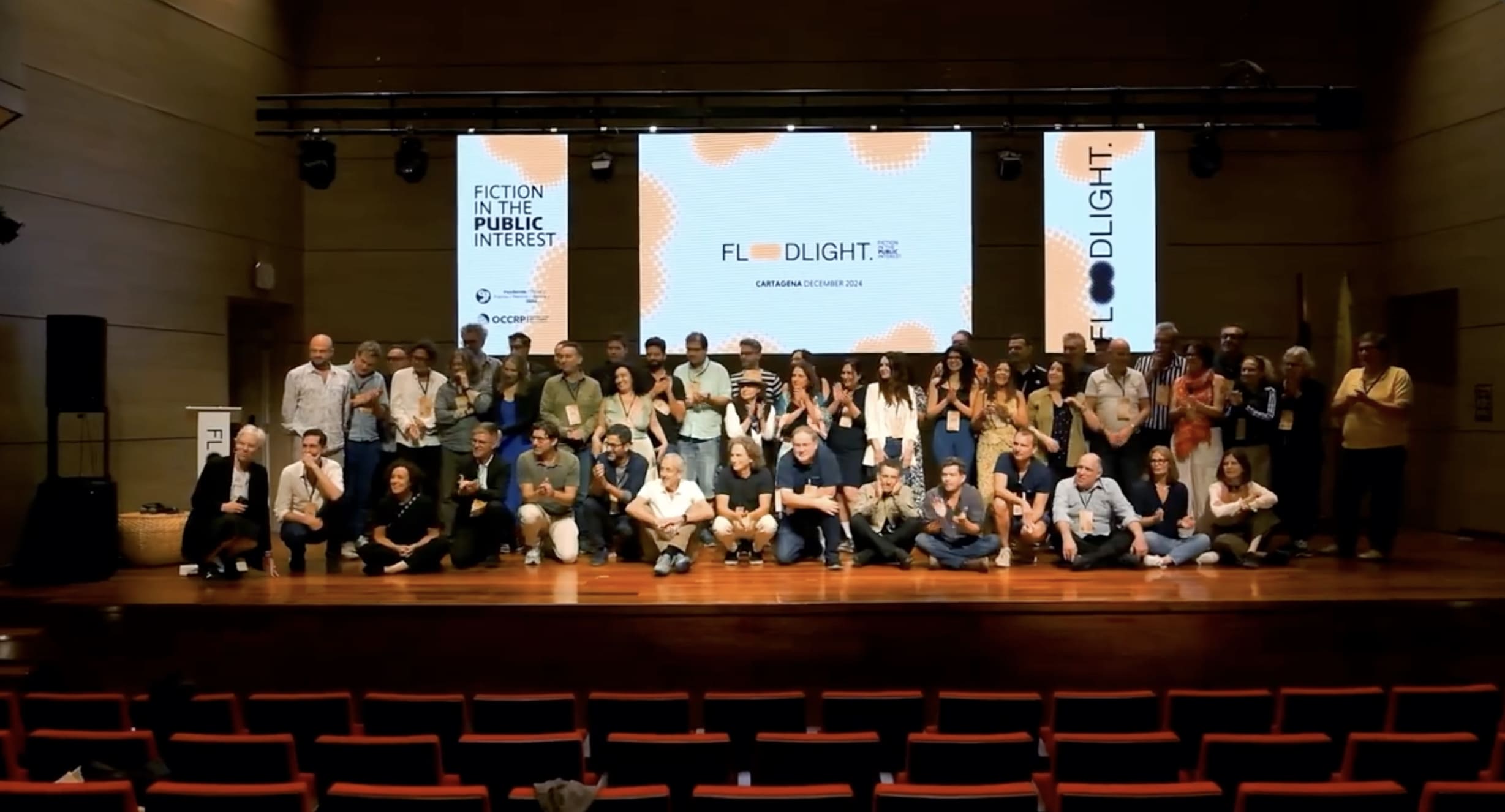
How It Works
Leading investigative journalists share both their published and unpublished stories. They open up troves of meticulously gathered documentation about issues that affect us all, spanning years of dedicated work. Top film and television storytellers are invited to discover the investigations as potential projects. Each field’s process is demystified leading to stronger collaboration, more impactful stories, and better informed audiences.






Testimonials
We accept applications year round!
Have a great story that would make a riveting film or television series? We accept applications year round
Our Team

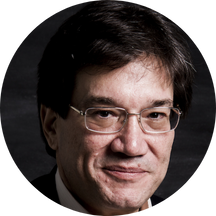

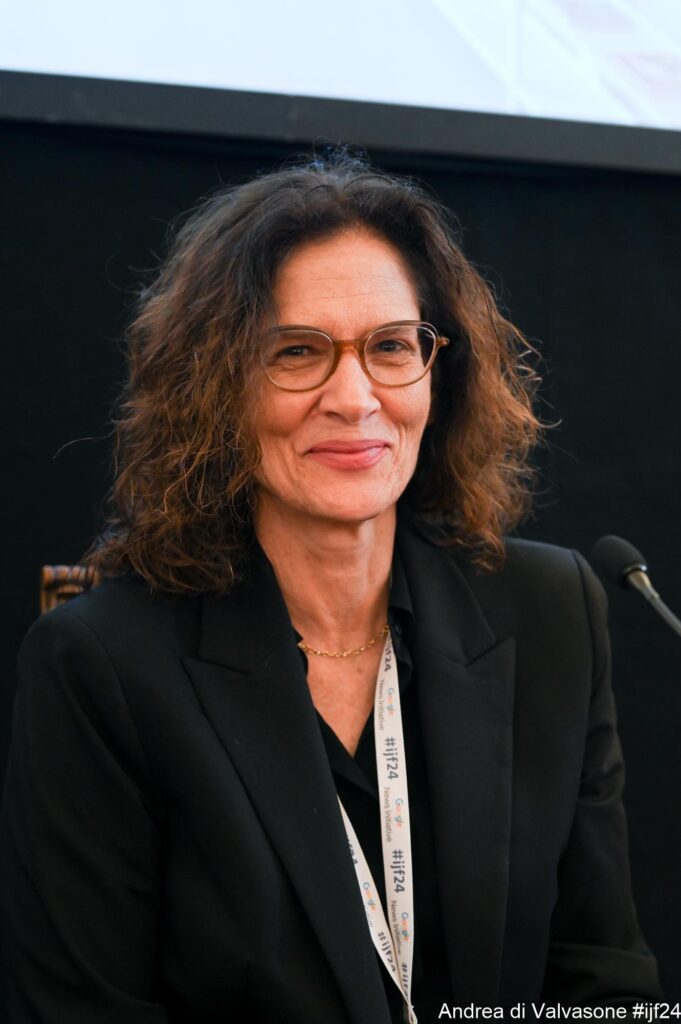
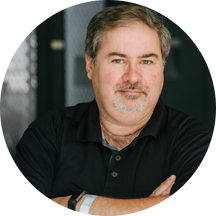
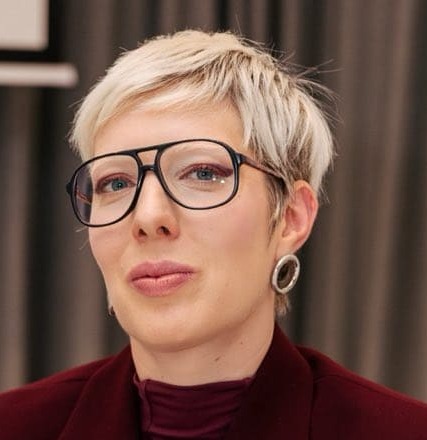
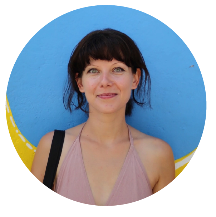

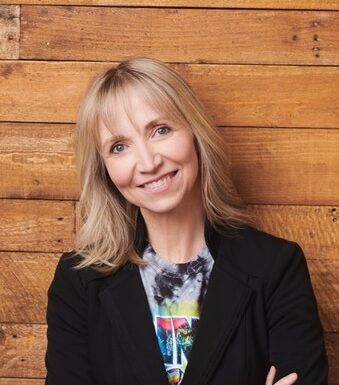
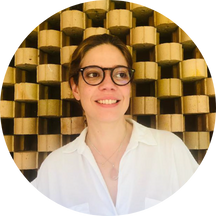
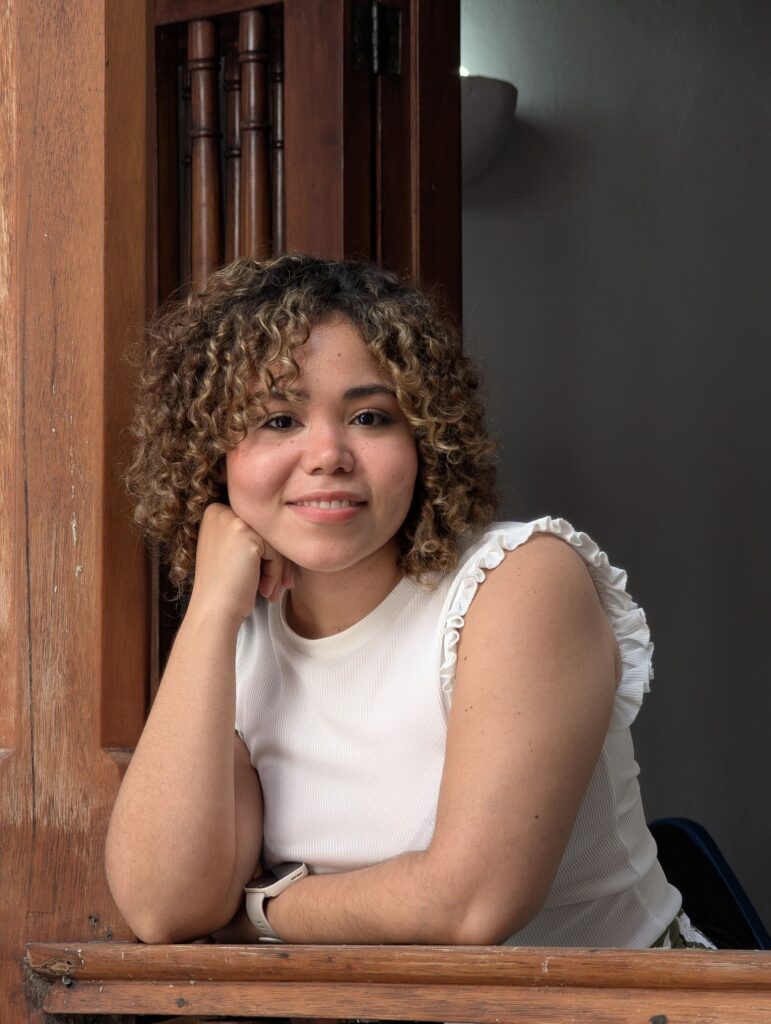

Paul is an investigative journalist and a co-founder of Floodlight. He is also a co-founder of OCCRP and the head of innovation there. He leads OCCRP’s major investigative projects, scopes regional expansion, and develops new strategies and technology to expose organized crime and corruption across borders. He is an executive producer of the award-winning film, The Killing of a Journalist (2022).

Jaime is a co-founder of Floodlight. He is the general director of the Gabo Foundation (Fundación Gabo), created in 1994 in Cartagena as an initiative of Nobel Prize-winner Gabriel García Márquez. Between 1990 and 1995, he was the CEO of the Colombian public broadcaster Telecaribe. Jaime graduated from the Faculty of Law of the Pontificia Universidad Javeriana of Bogotá and has dedicated his professional life to journalism, television, film, and cultural management.

Alesia is a co-director of Floodlight, overseeing the organization’s creative vision and strategy. She is also a co-founder of Floodlight. Previously, she led Sundance Institute’s International Feature Film Program for a decade, where she established the screenwriters labs and grant programs for emerging filmmakers from the Middle East, Asia, Latin America, and Europe. She was the executive director of the Jerusalem Film Festival and guest curator for the Beirut and New Zealand International Film Festivals. Alesia began her career at Imagine Entertainment and Trigger Street Productions, and later worked with Martin Scorsese to establish a platform for auteur filmmakers.

Philippa is a co-director of Floodlight, overseeing the organization’s creative vision and strategy. She is also a co-founder of Floodlight. Previously, she founded Cinephil, an international sales and advisory firm. She was an executive producer on Collective (2021), which was nominated twice for an Academy Award, and Flee (2022), which made Academy Award history as the first film to be nominated in the best documentary feature, best international feature film and best animated feature categories. Philippa won an Emmy Award for Night Will Fall (2015) which she produced with Sally Angel and Brett Ratner, and is an Academy Award-nominee for The Gatekeepers (2013). She is the co-founder of Film Platform, an educational streaming service available in over 2,000 universities worldwide. Philippa also served as lead commissioning editor for BBC Storyville.

Drew is an investigative journalist and a co-founder of Floodlight. He is also a co-founder of the Organized Crime and Corruption Reporting Project (OCCRP) and its publisher. Under his direction, OCCRP has won numerous awards, including the European Press Prize. Drew is an executive producer of the award-winning film, The Killing of a Journalist (2022). He has a degree in aerospace engineering and worked in the space industry before switching to journalism. Drew has also been a professional standup comedian and has played the evil foreigner in four Bosnian films.

Gordana is responsible for overseeing all aspects of Floodlight, including Summit logistics and day-to-day functions. She also assists OCCRP media member centers with building sustainable organizational operations. She has launched and operated several companies, including a creative agency covering design, architecture, fashion, and 3D printing. She has also led projects empowering women survivors of concentration camps. She managed a British Council-funded project producing fashion films and previously worked as a journalist covering culture on Bosnian national television.

Timea is responsible for the planning and production of Floodlight’s events. She is also a freelance journalist and international events manager and has worked on projects in Berlin, Vienna, Shanghai, and Cartagena. Timea manages a yearly street festival in Bucharest and curates cultural projects focusing on literary residencies, art exhibitions, and film screenings. Previously, she was a reporter and community manager for the first crowdfunded newsroom in Romania. During this time she worked in public relations for Sundance Film Festival-winner Acasă, My Home.

Daniel oversees the Floodlight project on behalf of the Gabo Foundation. As a special projects manager at the Gabo Foundation, he directs and coordinates the Gabo Festival, the largest gathering of storytellers in Ibero-America, and the Gabo Prize, an award that annually honors the best journalistic stories published in Spanish and Portuguese. He also oversees programs related to Garcia Marquez´s cultural legacy, such as Gabo´s centenary (celebrated in 2027), and the Netflix partnership that adapted One Hundred Years of Solitude into a television series.

Lauren oversees Floodlight’s strategic communications and media relations. Previously, Lauren ran her own media consulting business, advising clients from a range of industries. She has also been an off-air reporter and television producer for major news outlets and worked with journalists from 30+ countries on documentaries and news series. She has a bachelor’s degree in journalism and a master’s degree in social entrepreneurship.

Carolina oversees Floodlight’s engagement and digital strategy. She is also the head of marketing and communications for the Gabo Foundation. Caro is a journalist with a master’s degree in international affairs with a focus in digital marketing and data analytics. Over the past 15 years, she has been an editor-in-chief for media outlets, and has been in charge of the design and execution of multi-channel strategies in a range of industries, working in Colombia, Spain, and Argentina.

Laura is Floodlight’s logistics manager and special projects coordinator at the Gabo Foundation. She has over five years of experience in communications and project management, coordinating conferences, festivals, and workshops that aim to strengthen the Latin American journalism community. Laura is a social communication graduate from the University of Cartagena and is currently pursuing an MBA.
FAQ
How do I participate in Floodlight? (For Journalists)
We accept submissions on a year-round basis. You may submit an investigation for consideration at the button above. Please read the instructions carefully. The reporting must be original and you must own the rights to the investigation (or have written permission from the owner). We are looking for urgent, timely, and extraordinary stories. We select investigations in July for the Floodlight Summit, which typically occurs in December. You will be notified one way or the other about your submission. Thank you for your interest! For questions about the application process, please contact Gordana Miladinovic <gordana@floodlightproject.org>
How do I participate in Floodlight? (For Film and Television Creatives)
Invitations are extended to people in the international film and television industry based on the projects we select each year and the alignment with the Floodlight mission and values. We appreciate your interest!
What about intellectual property (IP) rights? It was my idea, I did the reporting, and I wrote the story. Does this mean I own the rights to it?
Not necessarily. It depends on what agreements you have signed, your work status, and the rights of others who helped or published the story.
If you are an employee of a company, you need to look at your employment agreement. As an employee, they may claim all of your intellectual property. We prefer that the journalist obtain the IP rights from their employer. If you do not, it may become complicated to make an agreement with a film company or even prevent such an agreement. If more than one organization ran the story, they also might make a claim on the property rights. You will have to look at what agreements were made, if any, and you may need signed agreements from the company or companies, releasing all claims to the property.
Other reporters might make a claim. You want to make sure they get proper credit and their work is rewarded. You may need to either include them in any deals with a percentage of ownership or get them to sign agreements releasing any claims. Floodlight’s values dictate that all journalists are treated fairly and equitably and are properly acknowledged.
If you are a freelancer, you again need to review your agreement with the publisher. If books or documentaries were made, those people and their agents and publishers may have claims. It can get dizzyingly complicated. And once money is on the table, everything gets one hundred times more complicated and everyone will want a piece. If ownership is complicated, filmmakers won’t want to deal with it. So you need to get these things sorted hopefully before applying.
If your story features a person strongly, they have rights to their life story. You may need their permission.
Please contact us with any questions about intellectual property rights. We can help you.
Be aware that even if you do everything correctly, successful films often attract legal claims. We strongly encourage you to keep all of your correspondence and document all meetings, conversations, and chats.
I want to submit an unpublished investigation. Do I own the rights since my outlet didn’t publish it?
If a story has not been published, it could make the situation very complicated. First, these stories may not be fact checked and fully vetted, which can cause legal or accuracy problems later. Second, the news gathered may be claimed as being the property of the media organization and the journalist must prove ownership of the rights. It makes the matter very unclear and we will not consider unpublished material unless it is a very compelling story. If a story is published and the pitch includes materials not included in the story, this is acceptable but the reporter may be asked to undergo fact checking or provide other documentation.
What happens if my story is selected?
Congratulations! There will be a certain time commitment needed from you leading up to and during the Floodlight Summit. We will ask you to sign the Floodlight agreement and provide proof that you own the rights to your story. We will have an initial orientation call the first week of September and you’ll be working with Floodlight writers on your story (this typically takes a few phone calls). You’ll meet with the Floodlight team who will help you prepare your pitch. We are on hand to walk you through the whole process and will give you more information after you are selected as a Floodlight Select Journalist.
If my story has multiple reporters, can we submit the story together?
If your story advances through the preselection process we will ask you for a statement declaring one of you as the representative for any deals that may come about as a result of the Summit.
Does Floodlight offer legal consulting services?
Floodlight has a team that provides legal information and consultation for journalists accordingly.




